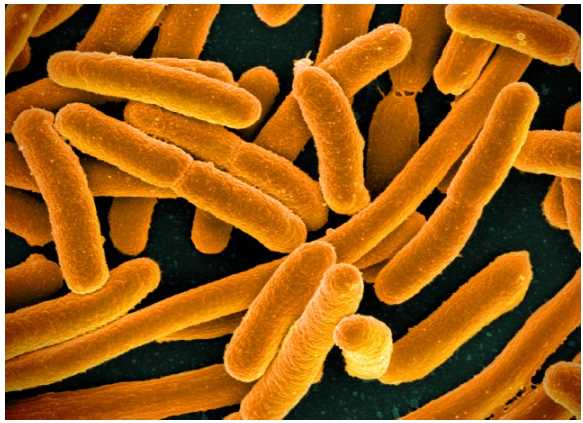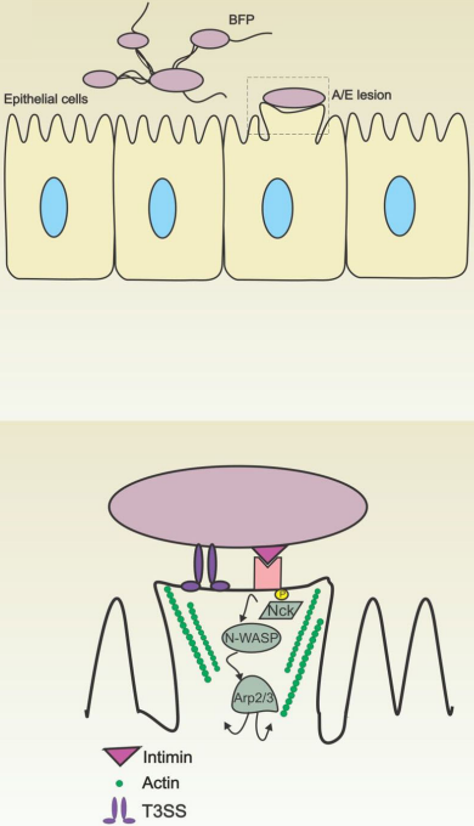Creative Biolabs is one of the leading custom antibody generation and development providers. We specialize in the generation of antibodies against a wide range of targets for R&D, diagnostic, and therapeutic applications. Currently, we have launched a series of biomarker-specific in vitro diagnostic (IVD) antibody development services targeting numerous diagnostic biomarkers of human diseases. Here, we focus on E. coli that may cause gastroenteritis.
About E. coli
E. coli, also known as Escherichia coli, is a rod-shaped, Gram-negative, facultatively anaerobic, coliform bacterium belonging to the genus Escherichia. It is generally found in the environment, foods, and the lower intestine of endotherms including humans and animals, which is warm-blooded. Even though most strains of E. coli are harmless, some serotypes could cause diarrhea, while others cause urinary tract infections, pneumonia and respiratory illness, and other diseases. The harmless strains are part of the normal flora of the intestine and can benefit the hosts by secreting vitamin K2 to protect the intestinal tract from colonization of with pathogenic bacteria, forming a symbiotic relationship. E. coli and other facultative anaerobes occupied about 0.1% of intestinal flora, and the pathogenic strains of the bacterium cause illness mainly through fecal–oral transmission. E. coli is expelled into the environment within feces. The bacterium proliferates massively in fresh feces under aerobic conditions for the first 3 days, and then the number faded slowly.
 Fig.1 The morphology of E. coli.1
Fig.1 The morphology of E. coli.1
E. coli Gastroenteritis
As mentioned above, most of the E. coli strains would not cause disease, but virulent strains could cause gastroenteritis, neonatal meningitis, urinary tract infections, Crohn's disease, and hemorrhagic colitis. The common symptoms include severe abdominal cramps, diarrhea, vomiting, hemorrhagic colitis, and sometimes fever. Virulent strains can also lead to bowel necrosis (tissue death) and perforation in rarer cases, without progressing to septicemia, hemolytic-uremic syndrome, mastitis, peritonitis, and Gram-negative pneumonia. Some strains of E. coli such as O157:H7, can produce Shiga toxin (identified as a bioterrorism agent), which can cause inflammatory responses in target cells of the intestine. And the lesions that the Shiga toxin leaves behind would lead to bloody diarrhea. The incubation period is commonly 3 to 4 days after exposure to Enterohemorrhagic E. coli (EHEC) but might be as short as 1 day or as long as 10 days in some individuals. Bloody diarrhea commonly lasts for 6 to 8 days. For some patients without correct treatment, dehydration and blood loss can result in death.
 Fig.2 Pathogenic mechanisms of enteropathogenic E. coli.2
Fig.2 Pathogenic mechanisms of enteropathogenic E. coli.2
E. coli Antibody Development Service
IVD antibodies are widely used in immunodiagnostic tools for disease screening and therapeutic monitoring. Through our role as a leading antibody service provider, Creative Biolabs is well-positioned to develop high-quality E. coli-specific antibodies. Besides antibody generation, Creative Biolabs also offers diagnostic immunoassay development services, including feasibility analysis, assay design, assay protocol establishment, assay optimization, and kit production.
Creative Biolabs has completed a number of IVD antibody generation and development projects for clients across the globe. If you are interested in our IVD antibody discovery services, please contact us for more details.
References
- From Wikimedia: By NIAID, CC BY 2.0, without modification, https://commons.wikimedia.org/wiki/File:E._coli_Bacteria_(16598492368).jpg.
- Reis, Roberta Souza dos, and Fabiana Horn. "Enteropathogenic Escherichia coli, Samonella, Shigella and Yersinia: cellular aspects of host-bacteria interactions in enteric diseases." Gut pathogens 2 (2010): 1-12. Distributed under Open Access license CC BY 2.0. The image was modified by extracting and using only part of the original image.
For Research Use Only.